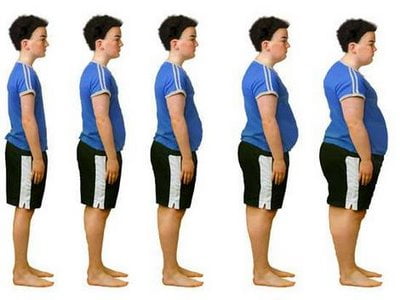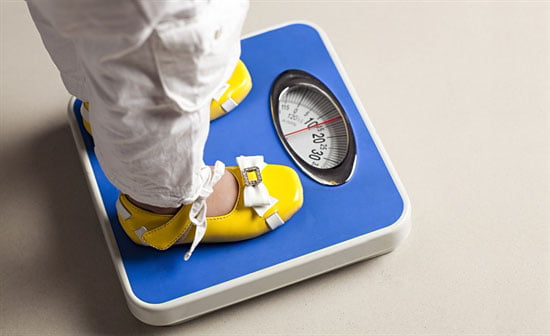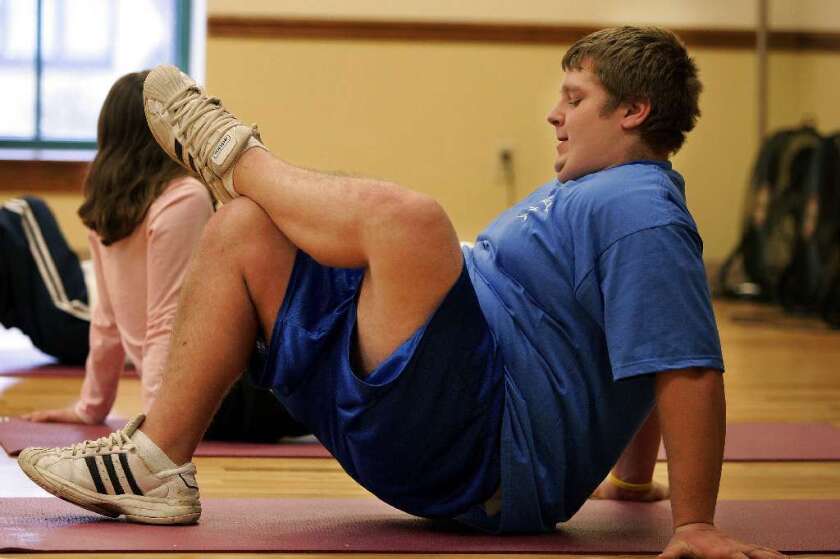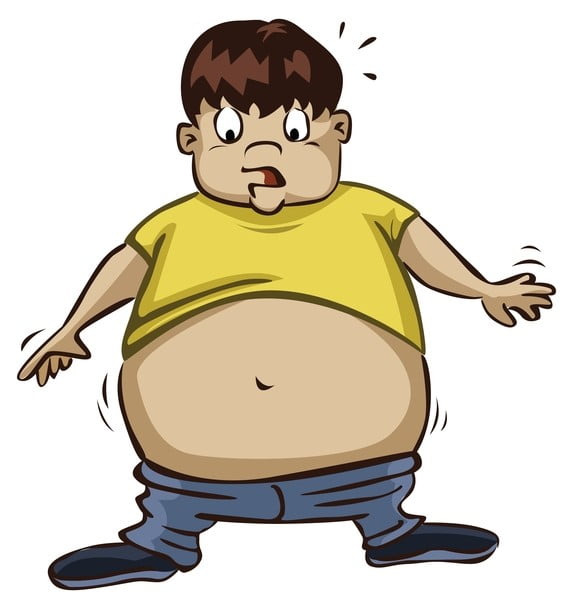Most people are familiar with the term ‘fat kids’. But what does it mean to be fat? For some, being fat means they have a high body weight in comparison with their height. According to the Centers for Disease Control and Prevention (CDC), obesity is defined as having a Body Mass Index (BMI) equal to or greater than 30 kg/m2.
Obesity in children can lead to many challenges including social problems, physical disabilities, mental health issues, and difficulties at school. As well as these personal challenges that come with childhood obesity there are also societal implications such as an “increased risk of diabetes, heart disease, and cancer in adulthood.”
Contents
Who Are Fat Kids?

The term “fat kids” is used to refer to children who weigh more than the average. While the exact amount of weight that makes a child fat has not been set. When compared with other children in their age group and height category, they are considered overweight or obese.
This means that for them it would be recommended to regularly exercise and follow a healthy diet. Many children tend to be fat because of excessive weight gain. While some are born with that condition; which is referred to as being “fat from birth” or “genetic obesity”.
Causes Of Obesity In Fat Kids

There are several reasons why kids get obese. These include the following:
Overeating
Eating too much food, not getting enough exercise. Or both of these things. When you eat more calories than your body uses. Then it will be stored as fat cells in the adipose tissue making a person gain weight. It is an individual’s total amount of body fat. It is the excess of calories that get stored as fats in our bodies that leads to obesity.
Genetic Predisposition
If a child’s parents or family members have been obese at some point, then it is more likely that he/she will also become obese. This is due to the genetic predisposition that they inherit from their parents which makes it harder for them to maintain a healthy weight throughout life.
Poor Diet
Not only are fat kids more likely to be obese. But they’re also at a higher risk of having an unhealthier diet than their non-fat peers. This is because the foods that they like and enjoy eating tend to contain high amounts of calories which can lead them to gain weight over time. They typically eat foods that are high in sugar, unhealthy fats, and salt.
Lack Of Exercise
A sedentary lifestyle is another leading cause of obesity in children. Children who spend more time watching TV, playing video games, or surfing the internet are more likely to be obese than those who regularly engage in physical activity.
Health Conditions
Some health conditions such as Hypothyroidism, Cushing’s Syndrome, and Polycystic Ovarian Syndrome can lead to weight gain in children. The medications used to treat these disorders can also cause weight gain.
Lack Of Sleep
Lack of sleep has been linked with obesity especially in children and adolescents who tend to stay up late at night playing video games, watching TV, or using electronic devices such as tablets and smartphones. A study showed that teenagers with less than seven hours of sleep each day had a higher risk of becoming obese compared to those teens who slept eight hours or more per day.
Social Factors
Social factors can also lead to obesity since obese kids are usually ostracized by their peers. This will make them engage in less physical activity which causes more weight gain due to low energy expenditure.
Challenges Faced By Fat Kids

While the causes of obesity for kids are well known, it is much harder to pinpoint what specific problems they could be facing in their everyday lives. Here is a list of challenges faced by fat kids:
Bullying and Discrimination
Obese children often get bullied by their classmates due to their looks. This can lead to low self-esteem and other psychological problems. They also tend to be discriminated against by adults, which makes it harder for them to find jobs as they become adults.
Social Isolation and Lack of Friendships
Fat kids often get isolated by their peers since few children want to befriend them or play with them. This will cause a lack of social skills which can affect the overall development process of obese children in many ways.
Stress and Mental Health Issues
Studies suggest that obese children are more likely to experience stress, anxiety, and depression compared to their peers who have a healthy weight. This can be due to bullying by other kids or parents’ restrictions on what they eat.
Poor Academic Performance
Obese children also tend to get poor grades in school since they lack concentration during lessons. It is being caused by the psychological problems they experience. This can affect their overall academic performance negatively which can lead to further problems in the future.
Coping Strategies For Fat Kids

Trying to cope with the challenges of being a fat kid can be difficult, but there are ways that they can get through it. Here are some coping mechanisms for obese children:
Talk to Someone They Trust
Obese kids should talk to someone they trust about the problems they’re facing. This could be a friend, family member, or teacher. Telling someone about their problems will give them a chance to get some support and help.
Eat Healthily
Eating healthy is one of the best ways for obese children to lose weight and cope with stress and anxiety at the same time. They should eat fruits, vegetables, whole grains, lean meats, poultry without skin or fat on it, and low-fat dairy products.
Avoid Junk and Processed Foods
Processed foods such as cakes, pizzas, fried snacks like French fries and chicken nuggets should be avoided by obese children since these can increase their calorie intake quickly. Instead of junk food, they should eat healthy snacks that are high in proteins like fruits, vegetables, or nuts.
Get More Sleep
Getting enough sleep is one of the best ways for obese children to cope with stress and anxiety. They should get at least seven hours of good quality sleep every night which will help them function better during the day.
Be More Active
Being more physically active can help obese kids to get rid of some of the energy they have while also increasing their self-confidence and improving their health. But make sure not to push them too hard as this could lead to further problems in the future.
Limit Junk Food Intake
Junk food should be limited in the diet of obese kids. This will help them to develop healthy eating habits and reduce their risk of developing obesity-related health problems.
Seek Professional Help
If the challenges faced by fat kids are too much for them to handle on their own, they should seek professional help from a psychologist or a dietician. This will give them the support they need to overcome these obstacles.
Social Skills Training and Life Coaching
While parents should take the lead when it comes to helping their obese children, other professionals can provide help. Social skills training and life coaching can be beneficial for kids who have trouble making friends or coping with the stress of being obese.
Recommended Foods For Fat Kids
Healthy foods can be difficult to find in grocery stores, so here are some recommended foods for obese children:
- Fruits like apples, oranges, and bananas
- Vegetables like broccoli, carrots, and spinach
- Whole grains like brown rice and quinoa
- Lean meats like fish, chicken without skin or fat on it, and turkey
- Low-fat dairy products like milk, yogurt, and cheese
- Dieticians on Obesity in Fat Kids
The American Dietetic Association notes that children who are obese usually have a high amount of body fat which can lead to many health problems later in life. This is why they need to lose weight at an early age.
NOTE: There is no one-size-fits-all answer to this question as different kids will need different diets. However, these are some general recommendations for the diet of an obese child.
Dieticians on Obesity in Fat Kids
There is a lot of debate surrounding the topic of childhood obesity, with many different professionals giving their own opinions on the matter. The main consensus is that obesity in kids should be prevented as soon as possible. At least, it should be treated quickly if it can’t be avoided. It has been linked to several health problems such as heart disease, type-II diabetes, and cancer.
Conclusion
While the causes of obesity for kids are well known, it is much harder to pinpoint what specific problems they could be facing in their everyday lives. Here is a list of challenges faced by fat kids: Bullying physical fitness social activities health risks appearance food choices.
However, with the help of parents and caregivers, we can provide these kids with coping mechanisms to make their lives a little bit easier. Recommended foods for fat kids are mostly healthy and low in calories, so dieticians can be very helpful in this area. With early detection and intervention, hopefully, we can prevent childhood obesity from becoming an even bigger problem.
For more information and Guidance, please contact MantraCare. If you have any queries regarding Online Child Counseling or Teen Counseling experienced therapists at MantraCare can help: Book a trial therapy session


